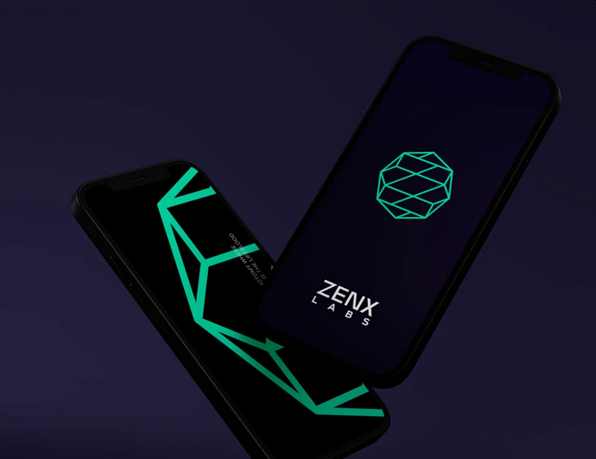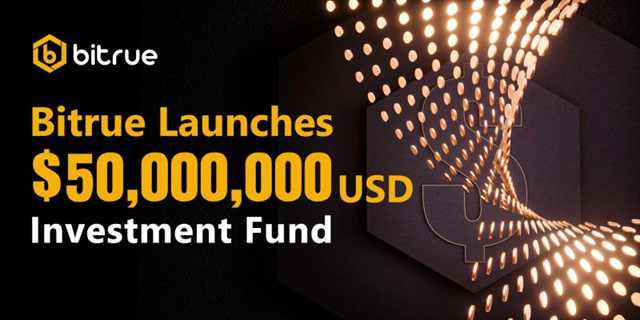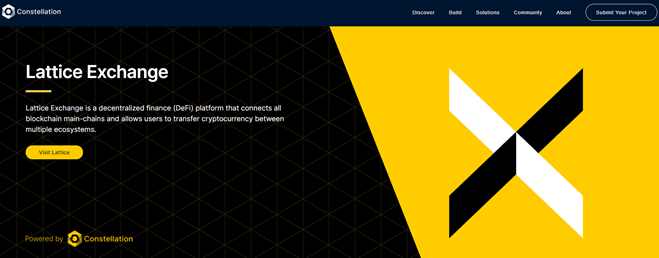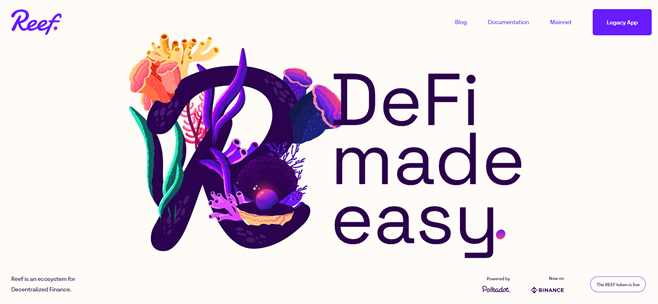Six Crypto Incubators Powering Decentralized Projects You Should Keep an Eye On

We all have people who helped make us who we are. Call them mentors, godparents, great bosses, or just wise friends; no one makes their way to success completely on their own. In business, this concept is similar.
Incubators aren’t as altruistic as a kindly professor who took you under their wing and pointed you in the right direction. However, they do serve the same purpose, and though there is a payment in the form of a percentage of future success, this business relationship doesn’t take away the effect of a solid mentorship.
Rather, asking for a stake in the business’ future success is a perfect way to align motivations, energize a mentor/incubator to give its protege the very best it can, and from the protege’s perspective, maximize its chance of success in a very messy, very brutal, very competitive marketplace.
The symbiotic nature of an incubator is an excellent and necessary way for upstarts with great ideas and talent (and little experience with establishing or growing a business) to be guided by a knowledgeable expert. And instead of a flat fee, which an upstart is unlikely to have, the percentage of future success is easier for the upstart to offer; after all, if they fail there is no real fee to be paid, and if they are wildly successful, there’s plenty of success to be shared.
Because of this solid model, it’s only natural for incubators to start establishing themselves in the crypto market. The key difference is that the entire DeFi industry is just over a decade old, with the vast majority of activity happening in the last two years. Who is qualified to be a mentor in a nursery full of children?
Thankfully, it doesn’t work quite like that, though a complete lack of experience is something to watch out for with upstart incubators. Instead, this experience comes from a broader range of industries, with DeFi being critical while also including traditional finance, tech startups, industries with heavy government regulation, and borderless industries. All of these areas, when tied to DeFi, are critical to moving upstart crypto projects through the minefield that have killed off most blockchain projects (over two-thirds) before they can even build a foundation.
Given the mass of entrants into blockchain as a whole, how can one be sure a DeFi incubator is a high quality? How are DeFi incubators different from the traditional incubator model? And what are some of the most interesting incubators to watch in the coming months? Let’s find out.
What is a DeFi Incubator?
Traditional incubators have some alignment with the emerging DeFi incubator model, but there are a few key differences.
Regulation
Traditional incubators follow governmental regulations and are often founded by policymaker support in order to boost local economic growth. DeFi has not established any set incubator regulations nor does it have a foundation of support from policymakers, meaning that there must be additional scrutiny from startups and investors on a DeFi incubator’s overall quality.
Fundraising
In order to infuse startups with capital, traditional incubators use a host of techniques ranging from federal funding, VC support, crowdfunding, and other methods. DeFi incubators have the advantage in that blockchain projects are built with an integrated, democratized fundraising tool: their token allocation
Infrastructure and Networking
Traditional incubators support their clients by aiding in the physical setup of the business (office, manufacturing, warehouse, software, security), and need to have ties to a multitude of specialists that their clients may need, even if the incubator is niche-focused. DeFi incubators focus on turning the startup team’s underlying code into a stable, usable DApp (or other UI), and because they are ultra-niche, the experts needed for mentoring and networking are usually part of the incubator itself.
Governance
While in both cases the investors have a proportional voice to governance, traditional incubators hand this control off to VC’s, where decisions are often made behind closed doors that control the startups. In DeFi, the incubators help to set up the token allocation and DAO, where decisions are made (to varying degrees depending on the project) by the token holders on-chain.

Photo by Elena Mozhvilo on Unsplash
That should be enough to separate the ideas of a traditional and DeFi incubator. Similar overall goals, different paths to make it happen. Traditional incubators are more cumbersome and have to offer a wider range of expertise, but are established and supported by governmental bodies. DeFi incubators live in the uncertainty that regulation is still being sorted out, but their naturally streamlined approach allows them to provide value faster and with less bureaucracy.
The downside of DeFi’s more streamlined approach is that unqualified teams can set themselves up as an incubator, looking legit but not containing the substance needed to boost projects. It’s important for startup projects looking for support to find a home at an incubator that is well established holds a strong reputation, and has something valuable to offer startup clients. Here are six that have solid roots and unique services, and are worth keeping your eye on.
TRON Foundation

Image source: Tron.network
TRON’s goal is to decentralize the web, and they’ve gone a long way to making that happen. To further this mission, they’ve announced a $300 million fund to launch TRON Foundation, an incubator that will use TRON’s well-established framework, expertise, and brand power to launch the next generation of blockchain projects. To bolster this goal of true decentralization, they have chosen to leverage their GameFi expertise.
They will focus on the unique and largely untapped opportunities that blockchain has created at the intersection of NFTs, DeFi, and Gaming. They hope to support projects that create entirely new and decentralized worlds (and internal economies) for countless users.
ZenX Powered by Unizen

Image Source: Unizen
ZenX is an incubator that positions itself as CeDeFi. Powered by smart ecosystem exchange Unizen, the goal of ZenX is to directly address the uncertainty faced by both DeFi projects and incubators given the lack of established regulation and fluid policymaker attitudes toward DeFi. To ensure their startup clients don’t suffer the fates of many blockchain projects hit with governmental fines and lawsuits, ZenX wields its strong experience as a fully compliant DeFi incubator, complete with a unified liquidity pool to support token allocation.
Using its CeDeFi architecture, the incubator leverages the best of both worlds. It uses ultra-efficient processes for building, auditing, and establishing token allocation. However, it also keeps the bridge to institutions, regulators, and time-tested management practices in order to maximize success on the projects themselves as well as being proactive to ensure compliance. Read more about the incubator here.
Impossible Finance

Image Source: Impossible.finance
Impossible Finance’s launchpad design was meant to bolster new projects and connect investors to project teams, similar to other DeFi incubators. However, they had witnessed too many problematic project launches that resulted in pump-and-dump or other schemes that either killed a good idea or were a scam in the first place.
The damage this type of fraud causes the entire DeFi ecosystem is massive, and Impossible has set up their incubator using the DAICO structure (detailed explanation here), driven by the experience of its founder Calvin Chu (responsible for Binance Staking and a contributor to Binance Launchpad).
Essentially, this system allows the benefits of a DAO, namely leveraging the wisdom of crowds, not putting full trust in a centralized team, and spreading out financing over time; while also incorporating a safety value of sorts into the DAO called a “tap” that largely prevents pump-and-dump, 51% attacks, and other methods that would ruin a project through malicious actions. Since this type of behavior has destroyed many a blockchain project, Impossible is set to improve the odds of success for its clients.
Bitrue

Source: bitrue.com
Bitrue’s focus is leveraging one of blockchain’s most powerful features: giving power to the people. To back this up in a major way, the team has launched a $50 Million USD investment fund that will allow serious muscle and foundational support for deserving projects. Taking effect in July 2021, Bitrue’s platform now allows its community to offer up suggestions on projects to fund, based on suggestions gathered from its social media channels. The community will be able to select the projects they want to fund, using their Bitrue Coins as a vote.
The only step not in control of the community is the vetting process, which is done between nomination and voting, where the team completes a structured, rigorous due diligence process to ensure that poor quality or fraudulent projects are kept out. Projects that get a certain threshold of votes are then listed on the exchange, with staked voters eligible for airdrops.
Some projects set for votes are focused on emerging blockchain ecosystems that the platform already supports, including Cardano and Solana. With the $50 Million investment fund and the community-driven voting platform, Bitrue will be launching some rising star projects in the near future.
Lattice Exchange on Constellation

Source: constellationnetwork.io
The Lattice Exchange is an incubator that separates itself in several ways. First, it is migrating to Constellation’s near feeless and infinitely scalable Hypergraph Network. This creates a number of unique opportunities for hosted projects, opening new business cases, value propositions, and potentially solving limitations of excellent projects that have started and failed on other networks because of scalability issues.
This alone gives the Lattice Exchange an interesting position, but the incubator has advertised itself as open to alternative and unexplored cryptocurrencies, providing a fully democratic platform for hopeful projects to nominate themselves on the list for funding, enabling Lattice Exchange token holders the ability to vote for the best projects.
Reef Finance

Source: Reef.finance
The Reef Finance Grant Program brings with its uniqueness in its goal to increase mainstream adoption of DeFi, and is using its leverage as an incubator to find, select, and support those projects that best demonstrate real-world use cases, particularly those that will bridge the gap between the niche crypto community and the mainstream audience.
They have stated their key goal is to support good development, and their results-focused approach will target promising projects from categories such as DeFi lending, bridges, runtime modules/chains, NFTs, DEXs, wallets/interfaces, and overall development/deployment enabling tools.
Conclusion
There is a great deal of excitement in the emerging field of DeFi incubators. They are similar enough to traditional models to be familiar, but leverage key DeFi features in a way that we can’t fully appreciate the impact they will have on the DeFi ecosystem. It’s important to not view all incubators the same, and there are some that are not built on quality and may even have ill intent. However, there are a growing number of DeFi incubators that are high quality, built with solid foundations, and have something unique to offer the DeFi community.




